DC Trip Reflections
Simon Gonzalez-Esteva

As a student, hoping to conduct my own research in the future this project has not only been inspiring but eye opening. Being able to do this only at the age of 17 was an experience worth noting. We started with only a word, "population" and have ended with an entire website done mostly by research conducted by us. After being given the word we were set free to develop a topic, a question, and places to interview. We landed interviews at the Pentagon, and the Japanese and Indonesian embassies. As 17 year olds it was amazing to see how our interviewees treated us professionally and respect. We were able to have in depth conversations and discussions. We were able to learn from each other and about each other. Before the trip we saw ourselves as high school students doing a school project, but they saw us as researchers and by the end of the project I see myself the same way. The material itself has taught that population like any other problem will not be an easy problem to fix because of its undefined lines, its social contradictions, its immensity, and involvement by so many people. How can we tell others what to do or not do and how are we going to stop natures simple pattern of growth, especially when so many are dependent on it?
Jake Hiebert

Our trip to Washington D.C was a great hybrid between our goal as an Academy For Global Studies to stay globally focused and the classes mainly focused on American studies this year. We got to investigate issues that not only effect the United States, but also the rest of the world. It was difficult for many of us to actually set up meetings with embassies and organizations from the limited time/preparation that we had for the project. This probably stemmed from the fact that we didn't have a clear understanding of what the project was and where it was headed. I think if the "website" part of the assignment was outlined to the groups before the trip to Washington, it would be easier to describe why we wish to meet with various organizations and what questions to ask. Regardless, the varying information that we received from the meetings was interesting and valuable. The meetings at the embassies pertained mainly to the specific problems of the country, which can give us a view as to how other countries might also respond to the same issues. Our organizations that dealt with internal population issues (in the United States) were off the page in terms of what we were looking for. The grouping worked well, but it was hard for groups to work on the project after the trip because of differing schedules. But, over all, it was a very fun and informative trip.
Taylor Harrison

My name is Taylor Harrison, a member of this group. Hearing about this group project was an excitement because I have always loved going outside of the United States' boundaries and truly delving into the issues of global interaction. Even though I did not attend the Washington DC trip and embassy meetings with my school and group, I enjoyed myself back home in Austin, Texas learning a lot about this topic. The students that did not attend the trip were not at all left out from the learning aspect of it all. I thoroughly researched this topic by gathering multiple sources of reliable information. I read through these sources and condensed each one into a basic summary so my group members and I could use the information for the project. Some of the information I read was basic, but a few articles specifically stood out to me and were very surprising regarding the statistical aspects. Learning about the cause and effects of the population problems in our world proved to be very interesting and really struck me as a serious contemporary issue. I gathered many facts to analyze and evaluate and I was surprised at a number of things. Many scientists and other researchers have been conducting tests and making hypotheses that if the population trend (life expectancy and population growth) continues at this rate, our world will become so heavily dense that it can cause even more problems. Having enough food resources for our world is one of the new concerning topics arising. It amazes me how many people have spent their career studying about this global issue. This entire project has been a very large "eye-opener" to me in numerous aspects. It has taught me to pay more attention to the surrounding world and also has brought me to realize the struggles of other foreign countries.
Alex Aboussie
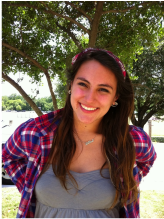
Hello, my name is Alex Aboussie, and this Global Problems Global Solutions project was not only interesting but enjoyable. The project forced us to step out of our former roles as students and experience what it is like to be apart of the global community. Setting up meetings with embassies on our own, set the stage for a project that was truly student lead. It felt rewarding to arrange meetings with ambassadors from foreign nations and actually meet with them professionally. Once the embassies began to meet with us, it was apparent that they were impressed with how professional we were, which gave way to more desirable discussions. Our experience in Washington DC began with our meeting at the Japanese embassy, where we discussed how Japan's population was slowly declining. This discussion gave way to a Japanese ambassador explaining the techniques for which Japan is employing to counter their problem. After meeting with the Japanese embassy we meet with officials from the Pentagon, where they discussed how The United State's Department of Defense affects populations after natural disasters in foreign and local regions. While at the Indonesian embassy we found that they had population density issues, this lead way to discussing how Indonesia is influencing their population problems. After all of our valuable and in-depth meetings with the embassies and the Pentagon I had learned how population is affected and how it affects so many nations so differently. While for this project we stayed in the United States, I discovered more about the global population than I had expected. Because I was forced to turn my research in to accessible information I was able to come to a greater understanding of the topic at hand. In summary, the valuable knowledge I gained from the trip to Washington DC, I was able to use to create a not only a website with the rest of my team but also a far better understanding of our global community.
Noah Minor

Hey, my name is Noah Minor, and the expedition to Washington DC was both an enlightening and entertaining experience. Having been born and lived in the DC area, I already had an understanding of the city; however this trip greatly increased my knowledge of our capitol, especially in regards to its global influence. This influence is of course reflected through the multitude of embassies from all countries. In the brief time I spent in Washington, my group visited three places: The Pentagon, the Japanese Embassy, and the Indonesian Embassy. Our guiding question, or central problem the group was trying to solve on this trip, was how population affected developing and developed nations. From our interviews at the Japanese and the Indonesian Embassies, the group concluded that developed countries like Japan generally had a decreasing population, while developing nations such as Indonesia were increasing. In synthesis, it became clear that the most desirable growth was moderate, meaning that the number of children born would replace or just surpass the number of deaths. The interview at the Pentagon with Department of Defense officials differed from interviews with ambassadors in that it was a more cause-effect orientated. The Pentagon representative presented specific issues in which the US military had affected population, such as the redistribution of people in Haiti after the earthquake. All of this information inspired me to reevaluate my global perspective, especially towards developed nations. Previously, I had believed that advanced states like Japan were problem-free, or at least in the population department. This turned out of course to be false, because the population of a country or any region affects every aspect of the place. In synthesis, the trip to Washington DC was a very rich experience, allowing me to meet a multitude of intelligent people and gain a greater understanding of the relationship between population and our world.
Jalen C. Rocha
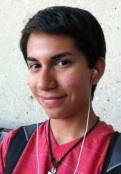
Hi, my name is Jalen C. Rocha, through out this project I have lead great deal in the differences of overpopulated and underpopulated countries. Despite over and underpopulation being a problem we can't directly deal with, such as poverty and malnourishment, there are still certain assistance that we can provide to other countries to help repair their economy. Visiting Washington D.C. was quite a journey for me, I somehow obtained a stomach virus making me sick and regrettably having to miss out the events of the day that our group went to go visit the Pentagon. I had visited Washington D.C. before for about half a month so I had already seen a majority of the monuments that we visited, so getting sick for one day wasn't as bad despite having only four days to visit Washington D.C. I greatly enjoyed seeing Washington D.C. again and visiting many different embassy's especially Indonesia. The place was beautiful and very informative, the employees who worked their took time and effort to help us with out project. Overall I am very great-full to have been give the opportunity of working on a project like this and broaden my understanding of global problems.
Pooja Patel
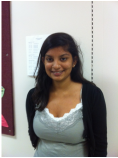
Hi my name is Pooja Patel and I learned so much from this project. I didn’t attend the D.C expedition but I learned as much as any of the other group members. The people that were staying home had to do in-depth research about our topic. This experience was amazing. I learned how to distinguish between a good source and a bad source. I also learned that our topic affects many lives. When doing my in depth research I learned that all the countries are one. It doesn’t matter if we speak a different language or have a different culture view at the end of the day we are one. Learning about population made me realize that every decision does affect each other and working together is the best way to try to solve problems. This project helped open my eyes and gave me a motivation of learning more information about our global community.
Taylor Blackburn

I am Taylor Blackburn and this project and trip to Washington DC has definitely been an interesting experience. From the very beginning I was extremely excited to get started on it, this was something new that we had never been asked to do in AGS. In doing this project we have learned how to work together as a group even better than we did before, of course as always that can be a tad difficult but we have pulled it off. While in DC, we met with different embassies, which was very exciting because both Japan and Indonesia felt completely comfortable and willingly told us how both of their countries were dealing with the issue of population. I was surprised by the information that we found out, and I had no idea that the Japanese population was declining at such at fast rate. I thought that if anything they would have over population. Overall, this was yet again another great AGS trip and an experience that I will always remember.
Lauren Hadley

Hey guys, I'm Lauren Hadley. This Washington D.C. Project, which has consumed so much of our junior year, was definitely an experience to remember. Personally, I am a planner. So, I loved the immense amount of freedom that the junior teachers provided us with. And although it was no doubt difficult to obtain access into many of the embassies and other places we visited, it was a great learning experience for us. Most of us are 17; one year away from being a legal adult. I loved that we had to make the phone calls and figure out a way to make this trip work. I loved that we were able to pick where we eat in DC, how to get from place to place, and what to do with our down time. Back on the project though, I think that the overall theme of this project was something that needed to be done by us, being the students of the Academy for Global Studies. We needed to take the issues we're learning about global into our hands and try to do something about them. For everyone, population growth is something that is threatening this planet. I'm thankful that we were given the opportunity to talk with some of the most important people in the world about their country's population problems. This was an experience like no other.
Kat Mateja
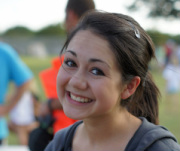
Hey everyone. I’m Kat Mateja and this trip was definitely a learning experience entire trip was very enlightening, and I learned about my topic of population control and more. I had been to Washington, D.C., before with my 8th grade class where a parent planned the entire list of activities. This time, we got the experience of planning our activities to accomplish our goals. We learned what it meant to be “professional” and how to act in a professional environment. We also learned how to work together as a team. One of my favorite parts of the trip was meeting with the people at the embassies. There were just as enthusiastic about our topic as we were. Though it had its ups and downs, this project and trip taught me so much and is an experience I will never forget.
Elena Bernal
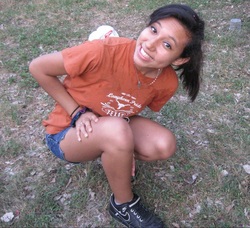
Hey everybody, my name is Elena Bernal. Every year being in The Academy of Global Studies we have a trip, freshmen year was to Arknsas for the Heifer project and sophomore year was to Costa Rica for a volunteer project, unfortunately I wasn't able to go to either of these so when I heard about going to Washington DC for junior year i was more then excited. When we first started this project I honestly didn't know what to expect especially with doing a subject like population. As the weeks went on while working on the project it got more and more interesting which made me very excited for meeting with the embassadors of different embassies. From the experience I learned way much more about the idea of population then I expected to. All in all, working on the project in Texas and then going to Washington DC to get more information just widended our understanding.
